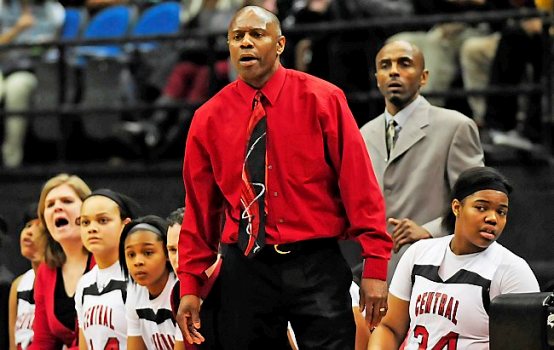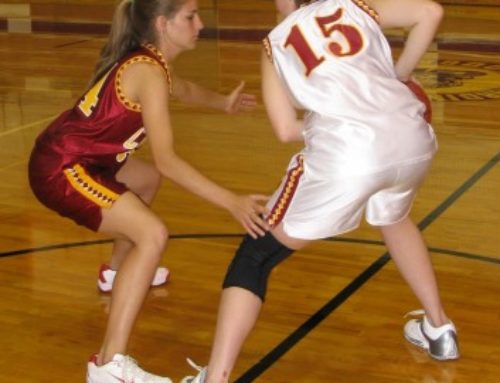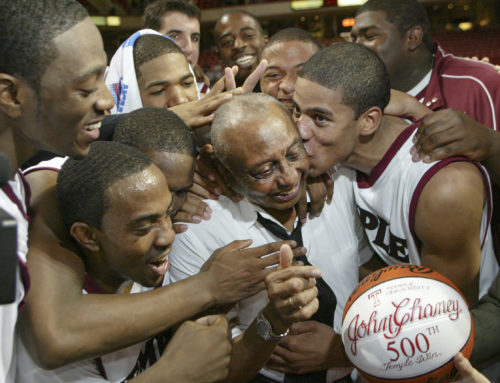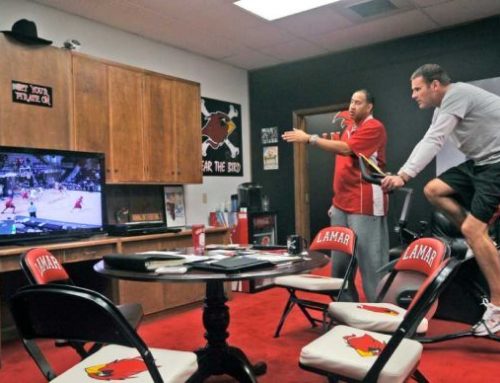Here at BenchBoss, we decided it is time to put a spotlight on one of the main lifelines of basketball: high school coaching. Over the next couple of weeks I will investigate what is it like to be a high school basketball coach in North America, analyzing the various inputs I have from coaches in Canada and United States. What are their main motivators? What is the hardest part about coaching teenagers? What tools do coaches use to better demonstrate their ideas to the youth? How fulfilling is it to teach someone the ways of basketball? These are just some of the questions that will be answered in my multi-part series about high school coaching over the coming weeks.
When we think of basketball coaches, the most usual images that we see are high-profile, professional coaches in the NBA or other bigger pro leagues in the world. However, those are just a very tiny fraction of basketball coaches who are purely focused on getting the results for their team. I would argue that they are not as important to the game of basketball as coaches who mold young players such as high school coaches. They have to have the necessary knowledge about basketball, while also possessing great teaching abilities in order to transfer that knowledge to the players. Moreover, the players are teenagers that are entering puberty, making it very difficult to reason with them at times, so a high school coach needs to have the right approach in order to get though to the players. And don’t think for a second that high school coaches don’t go through as much stress. Considering this is not a job that brings a lot of bucks, yeah you could say being a high school coach is not a piece of cake.
The most demanding aspect of being a high school coach would be the time it takes to build a complete program. In order to be a complete program, a lot of time needs to be spent with local youth and local youth coaches to share the vision for the future of the program. This means offering development camps, clinics, attending youth practices, inviting youth teams for the high school practices, offering coaching mentorship, and being on the same page with local AAU programs.
Patrick Rainville, Head Coach of the Lyndon Institute Vikings
As Coach Rainville pointed out to me, building the right kind of team over time is one of the main difficulties with being a high school coach. The high school teams usually play a crucial role in the local basketball community, and have lot of influence on the youth programs. Since the objective is to create a lasting program, a high school coach needs to be familiar with the younger groups that will potentially end up in their team when they grow up. Therefore it is crucial to create a culture that you want in your program in younger groups as well. This is a hard thing to do because it takes multiple years to create such an effect.
One other problem that high school coaches have is that they usually don’t have enough time or resources to properly do their job. Some coaches have to balance other jobs with coaching and therefore simply can’t manage to accomplish everything. In order to maximize their abilities and save time, high school coaches use technological tools to help them analyze their team. Filming games and practices and using basketball statistics platforms enables them to have a clearer picture of their team, and makes it a lot easier to see how each player is performing. Moreover, it is easier for coaches to explain their controversial decisions to the players with these tools. All this work demands time nevertheless, and for the dedicated coaches that love basketball, it is more than a full-time job. As one coach has told me, the coaching never ends when you leave the gym!
As I have previously mentioned, a high school coach is definitely not immune to pressure. Even though there is not much emphasis on the success of the team as there is in the pros, high school coaches go through a different kind of stressful situations. A popular trend in youth sports recently has become the involvement of athlete’s parents and their influence on coaching. It can become so distracting that coaches often feel like playing against the parents as much as their opponents. In high school sports, parents have become more and more brave to voice their displeasure and disrupt coaching in order to make sure their kid has more opportunities. A high school coach needs to be prepared for this nuisance and have the necessary people skills to manage different personalities, both on and off the court. When we consider how much these coaches are gaining from this job, it is understandable that not everybody is ready to take on this challenge. However, the fulfillment of teaching a kid about on and off court manners make it all worth it. We’ll look at this bright side of high school coaching next week.





